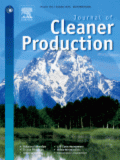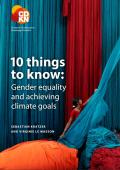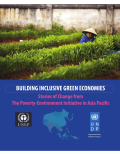
High upfront costs and investment risks constitute critical barriers for investments in low-carbon infrastructure technologies in the Middle East and North Africa. This article uses a case study of Morocco's solar strategy for the electricity sector in order to explore how domestic versus regional/multilateral governance structures impact upon the downside risk of clean energy investments and translate into lower financing costs. The authors firstly process-trace the differential effects of governance on policy and financial de-risking, intended as risk reduction and risk transfer. Then they quantify the impact of policy and financial de-risking on the financing costs of the Ouarzazate CSP Noor 1 project.
This paper asks what insights the literature provides on divergence versus convergence of innovation paths in Europe and Asia. It contrasts the abundant literature on determinants of innovation paths with the scarcity of studies that are explicitly comparative across countries or continents. Implicit conclusions however emerge from several lines of work including evolutionary perspectives which stress differences in national conditions, and other perspectives which stress latecomer and globalisation effects. This paper distils and draws together the main conclusions on why innovation paths can be expected to diverge or converge. Its contribution lies in spelling out and bringing together implicit and explicit insights from a wide range of literatures. It also provides an analytical backdrop for some of the other papers in this special issue of Science and Public Policy which provide comparative empirical analyses of low carbon innovation paths.
Sustainable economic growth needs to be the primary objective of every government, including developing Asian countries, to improve the social welfare of the people. Therefore, to achieve the desirable level of sustainable economic growth, environmental degradation must be controlled without lowering real growth and the well-being of the society. This study empirically investigates the impact of environmental degradation by CO2 emissions on the economic growth of 11 Asian countries between 1990 and 2011. Based on the nature of the data, traditional panel estimation techniques encompassing fixed effects and random effects are employed, in which the results of Hausman's test and other tests show that the use of fixed effects is preferable over the random-effect estimator. Empirical results exhibit that environmental degradation has a significantly negative impact on economic growth. Empirical findings also suggest that environmental degradation should be regulated. Therefore, environmentally enlightened management policies for the decrease of CO2 emissions and fuel consumption by transportation and industries need to be pursued by Asian countries.

Although climate change and poverty are increasingly recognised as interlinked global problems, responses often focus on their scientific and economic dimensions only. This research study highlights the advantages and challenges of pursuing climate compatible development, i.e. inclusive green growth, from a gender perspective, pulling in evidence from projects in Asia, Africa and Latin America. The field work focused particularly on urban environments, as there is a relative paucity of data from cities, compared to rural areas.
While international frameworks are gradually becoming more aware of gender issues, all too often gender is simply “added” to existing policies. Women’s views, needs and participation are frequently excluded from climate change responses and development initiatives. Moreover women are often perceived as victims with little consideration for the contribution and leadership they could provide in adaptation and mitigation efforts.
A comparative study of gender approaches in climate compatible development initiatives in Peru, Kenya and India asked:

The UNDP-UNEP Poverty Environment Initiative (PEI) offers a unique way of tackling these issues together by offering policy options to governments on how sustainable use of natural resources can help reduce poverty and maintain economic growth. With strong support from six donors globally, PEI in Asia Pacific is working with nine countries to mainstream pro-poor natural resource management into economic policies and decision making to achieve more inclusive green economies.
